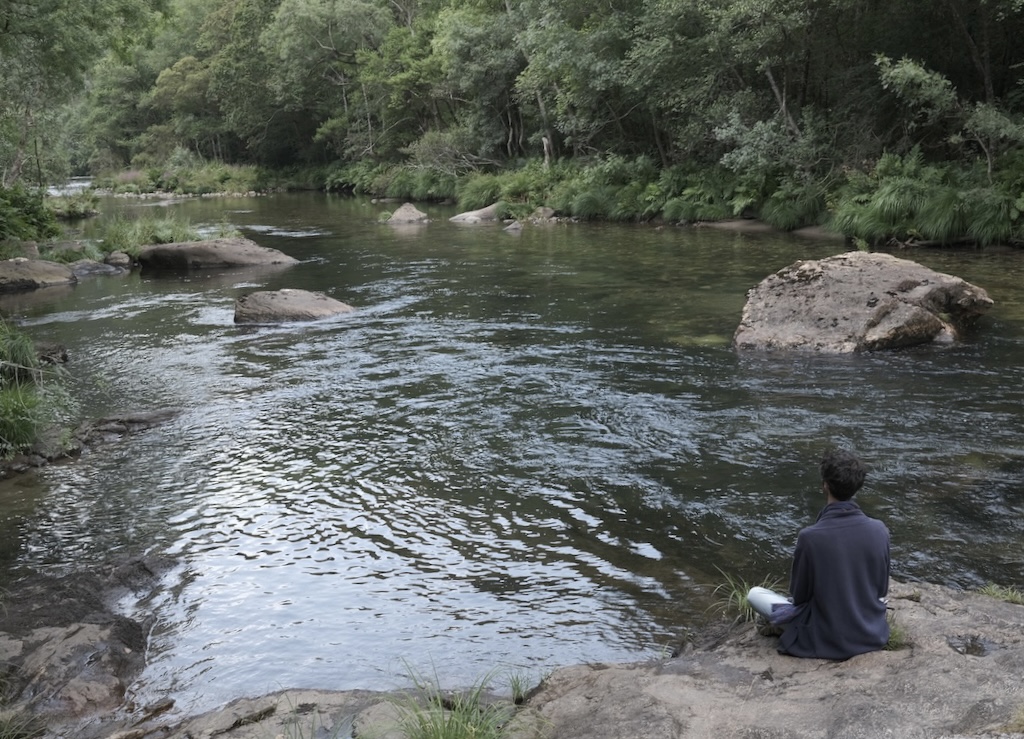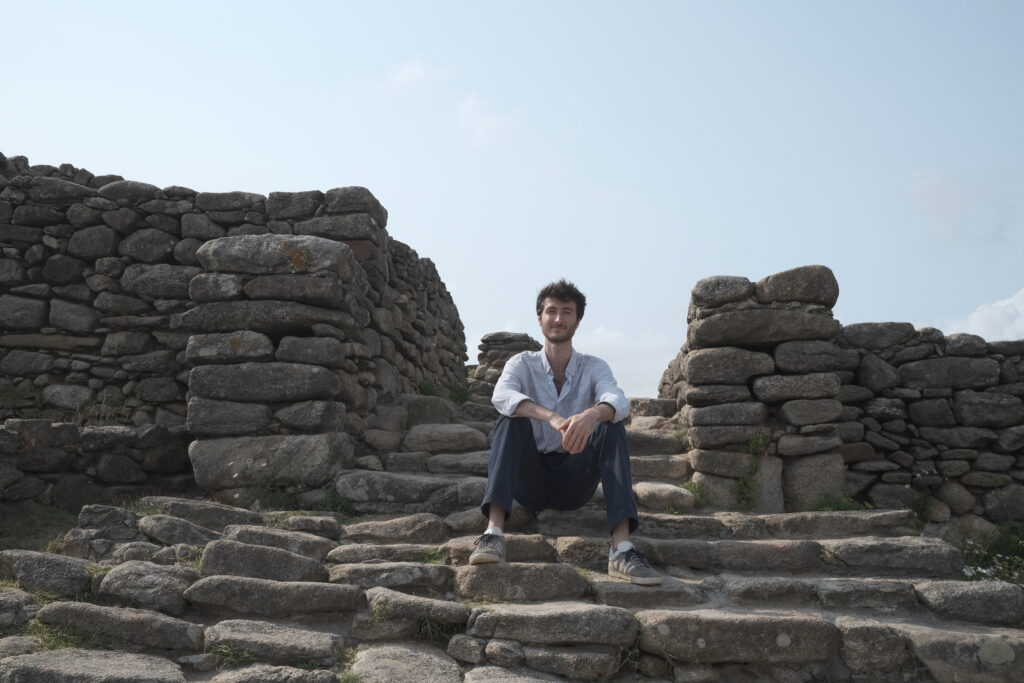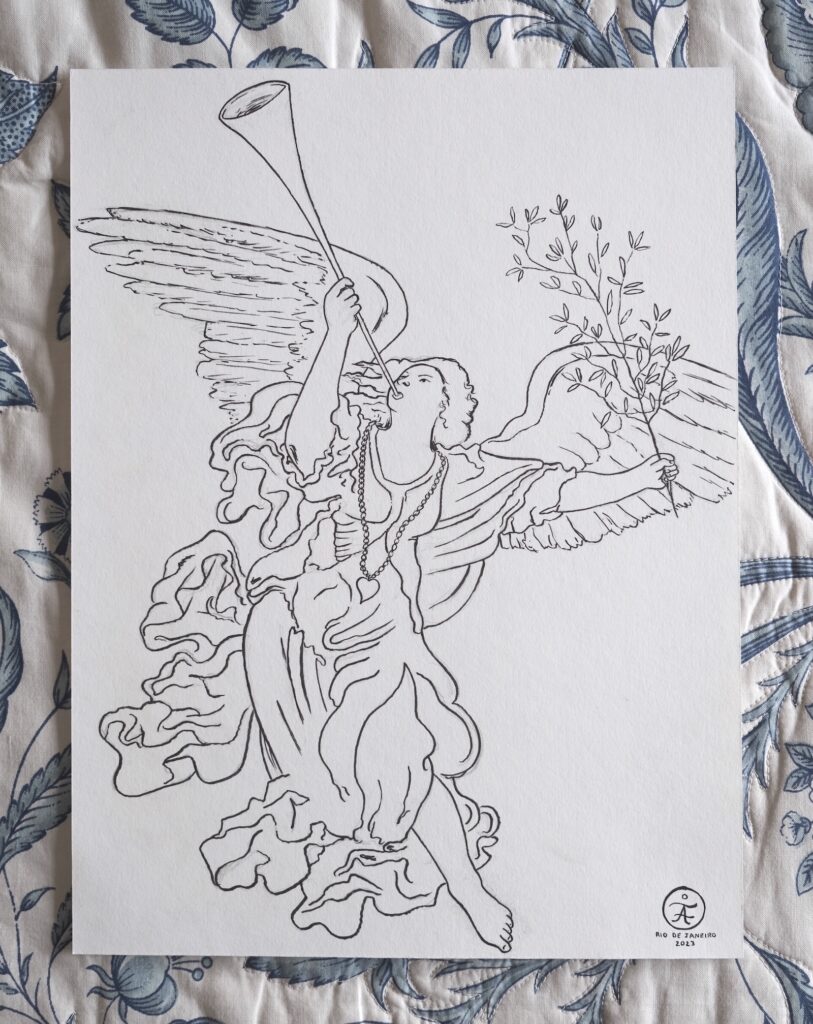“The presence of God is experienced by everyone at all times. It’s just that we don’t recognize what it is.”
David R. Hawkins, M.D., Ph.D.
On the last day before heading to Chicago, I met up with my dear J, and we lay down looking at a pale gray sky, the final glow of the sunset.
I first met him in the schoolyard. He was forming a band with another friend, and they invited me to join. Both of them played the guitar; I played the piano. That summer, we spent a lot of time together, playing blues and Beatles songs on his terrace. We also swam in the pool, sneaked into abandoned houses, and skateboarded down the slope of his garage until I fell and scraped my entire back. We were 14 years old. That’s how my first band started with him, and for the next 7 years, we formed one after another. Other members came and went, but J. and I stayed together, playing, singing, and composing songs together.
Now, I was leaving for a year, and our common project hung by a thread. We decided to work separately so that when we got back together, we would have good material to form a new band.
I left, wrote several songs, underwent a metamorphosis, and returned.
On the first day we got together to play again, we played “Two of Us,” a two-part harmony Beatles song.
You and I have memories
Longer than the road
That stretches out ahead
Two of us wearing raincoats
Standing solo in the sun
You and me, chasing paper
Getting nowhere
On our way back home
We’re on our way home
We’re on our way home
We’re going home
We were together again, doing what we always loved to do. But in the intimacy of my heart, another song played. I recognized the same feeling I had when returning to my engineering studies: “this isn’t it,” as if there was a space with my name on it where I no longer fit. It struck me to feel this with J., but I didn’t get too alarmed. Playing together is a complex art, it requires practice and time, and we had been apart for a long time. So, we continued meeting and playing together. We also searched for a new rehearsal space and recruited former members. Soon, we were playing the new songs.
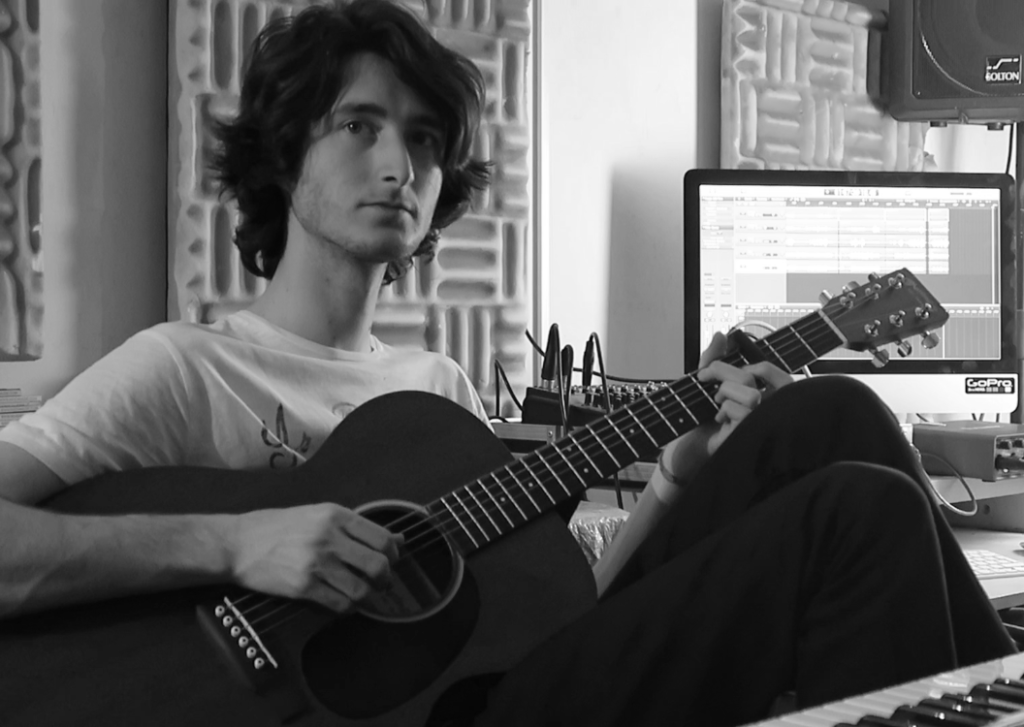
By this point, I had already left the engineering master’s program, and my mind yearned for some solid Plan B to grasp onto. This horror vacui led me to sharpen my mind and direct it towards my band, to see if it could be a proper vehicle to move forward. What I saw was a group of friends whom I loved and enjoyed playing with, but I didn’t feel it was a solid ground on which to build a career. We drank, smoked, someone was always missing, and we tried to put the songs together with all our good will, but with each turn, they sounded different, and not always for the better.
The same crisis that pulled me out of university now entered the rehearsal space. Returning to the analogy of the iron filings: this filing wasn’t in its rightful place, and thus the power of the field silently insisted on moving it away from there. I felt this clearly in my heart. “This isn’t it,” urging me to take another leap into the void.
One day, before a rehearsal, I met with J. and told him all of this. I said I wanted us to keep playing together for the love of art and our friendship. But I also felt that I wanted to give my music a chance professionally, and I didn’t feel that this was the right lineup to do so. That was my truth, and expressing it was as challenging as receiving it, I’m sure.
J. then proposed something: he would switch to bass, leaving me the acoustic guitar, and we would look for more committed bandmates to start a new project.
I accepted, but not as one accepts their fate by taking full responsibility. I accepted like one who resigns and begins to live, resentfully, a life that they sense is not their own.
I accepted out of fear of hurting J. and even losing our friendship. We had always dreamed of having a great band together, and I was misled by the sentimentality of that shared dream.
I accepted out of fear of the abysmal freedom in which I lived at that time, which threatened to grow even more if I abandoned the project.
I accepted because I prioritized the value of friendship over the value of truth. What an inversion.
I accepted, essentially, out of ignorance of who I really was, what I wanted to do, and whose Voice it was that was speaking to me through my heart, urging me to leap into the void again.
I will talk about what happened next in following letters, but it was three years of building on sand, with the consequent collapse.
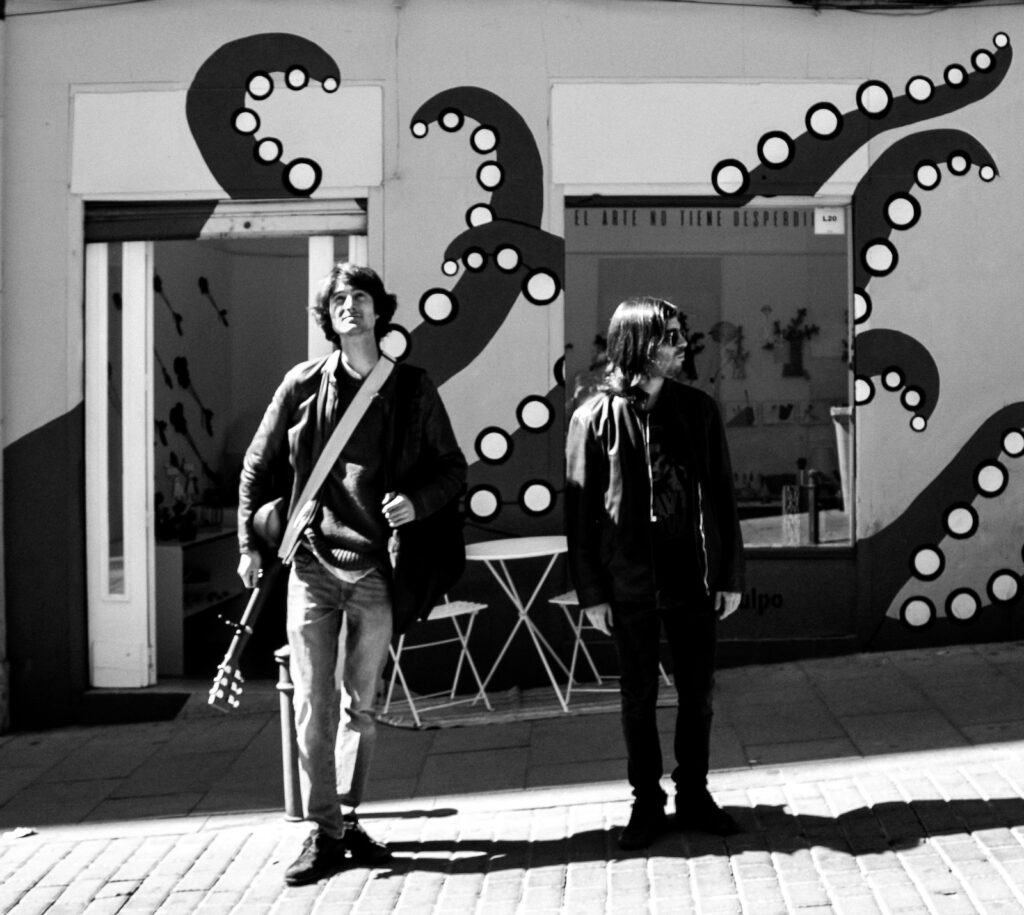
Picture by Maite de Orbe
It’s interesting. After the epiphany in Chicago, doubting Your existence never made sense to me again. So, I never needed to have faith in that. However, that beatific experience was so removed from everything I had known until then that I didn’t understand anything. I didn’t understand how that could help me in my practical life in the world. I didn’t understand that the “This isn’t it” was Your Voice speaking to me through my heart. You were guiding me, but following You is what truly requires faith, and I didn’t have it, nor did I know that I didn’t have it. I simply didn’t recognize You.
It took me the entire week to write these last few paragraphs. Oh how I’ve wept writing that last sentence. But really, it’s been the culmination of several years of self-reflection, trying to understand what happened there. It has been quite a journey, from denial and pride, to guilt and regret, to responsibility and acceptance, to forgiveness, and finally, the recognition that everything is perfect just as it is. This last leap is the gift that writing this letter has given me.
Thank you.
That painful period was part of my spiritual curriculum. The whole experience was my teacher, and I had to go through it to learn a great lesson: that truth must always lead the way, and it is always better to follow it, even if blindly and trembling with fear. That great lesson, once learned and integrated, soon turned my life around. That’s where my journey inward began.
Reaching the end of this letter, I feel at peace.
“The past is in the past” is not entirely true. We always carry the past with us, and its weight depends on how we interpret it, that is, the meaning we consciously or unconsciously give it. Shame, resentment, guilt… make the past a heavy burden. Total responsibility and acceptance lighten it. Forgiveness starts to dissolve it. And after much forgiveness, one finally comes to see reality as it is: perfect. Once that understanding has been reached, the past (or karma) is undone, and one, at last, is free from it. One walks light again, like a child without a past.
A.
